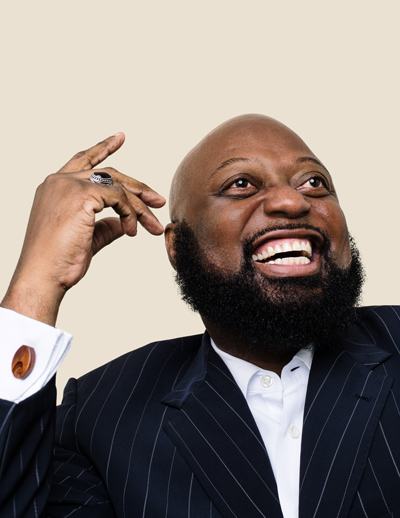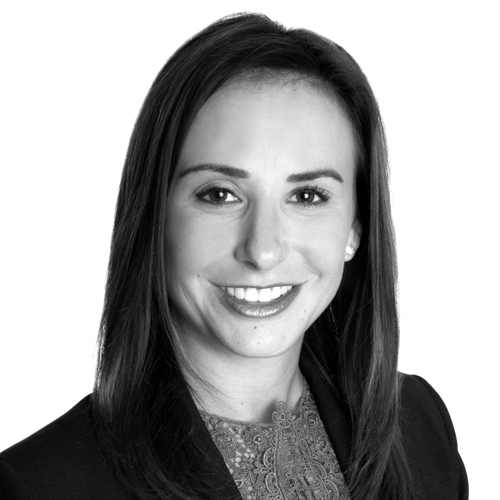Despite his many accomplishments, driving his car can be an intimidating experience for Maurice Sholas because of the color of his skin, he says.
“I am an MD-PhD from Harvard with a senior leadership position at a major organization, yet I’ve been stopped by police every time I’ve gone into the suburbs around Minneapolis,” Sholas says. “Not sometimes. Every single time.”
Sholas, the senior medical director of rehab services at Children’s Hospitals and Clinics of Minnesota, has frequently experienced racial bias throughout his medical career and personal life, and he’s made it his mission to cure these biases and transform society’s perception of black men in the medical world and beyond.
Sholas says that empathy, not technical knowledge, is the most critical skill he needs in order to deliver the highest-quality care he can to his patients. Every patient he sees brings a different set of values, experiences, and beliefs with them that Sholas needs to take into account when administering care.

“Two different patients can have the same injury. They can both have some of the same deficits, but the construct and how they make sense out of it is influenced by how they see the world, what their construct of illness is, and what their religious background is,” Sholas says. “All of that goes into it.”
About 20 percent of Sholas’s job involves caring for children with congenital or acquired physical disabilities, but it took him a while to find the specialty that resonated with him. His medical school rotations in cardiology, obstetrics and gynecology, and orthopedics left him wondering why so many of his peers had found their calling while he was feeling apathetic. Always an academic at heart, Sholas picked up a book that detailed dozens of medical specialties to find an answer; he found rehab medicine.
After that discovery, Sholas scheduled an elective in his last year of clinical training to work on a spinal cord-injury unit. He immediately knew that he had found his passion. “I connected with them as people, I connected with them as survivors, and I connected with them as they navigated life after a setback,” Sholas says. “It was wonderful.”
In addition to clinical work, the bulk of Sholas’s job requires him to collaborate with executive leaders across the Children’s Hospitals and Clinics of Minnesota system to incorporate pediatric rehabilitation programs into their hospitals’ and clinics’ services. Often, the executives he speaks with have no experience managing this type of care, which means Sholas has to lay out every step of the process for them, including financial customer service and customer care targets, among other aspects.
Despite his measured approach with patients and colleagues, the empathy Sholas shows the people in his clinic hasn’t always been extended to him professionally or personally. One example of implicit bias has stayed with Sholas ever since he experienced it.
Several years ago, he was having a meeting with a former colleague to discuss strategies for an upcoming project. They disagreed about different elements of the plan and began debating the merits and flaws of each other’s ideas. Neither person was yelling or cursing at the other, but as time went on, instead of continuing to debate Sholas, his colleague told him, “I’m afraid.”
“In this setting, what is happening that would make her feel afraid?” Sholas says. “It was very offensive to me because to me because it was so ridiculously out of context.”
The best way to foster empathy among others who are different from you—whatever those differences might be—is exposure, Sholas says. He finds that informal settings, such as having lunch or getting together with someone outside of work, is the best way to become closer with colleagues. It also helps eradicate biases or preconceived notions his coworkers might have about him based on his race or appearance. For Sholas, often this means talking about sports.
“The light that came on in that boy’s eyes when he saw it was possible that someone who looked like him could be a doctor made me so proud I cried.”
“I’m a huge New Orleans Saints fan. I’m a huge San Antonio Spurs fan,” Sholas says. “Sports motivate me to do all kinds of stuff and spend all kinds of money. You can’t understand me if you don’t understand I love sports.”
Moments like the one he experienced with his former colleague are wearisome, but Sholas makes sure to surround himself with people who help keep him energized and in good spirits. Mentoring and setting a positive example for children is another way he tries to maintain a positive outlook. He takes the time to mentor family members, and friends have also connected him to individuals who they thought might benefit from Sholas’s guidance. But he takes advantage of spontaneous moments to make an impact, as well.
One day, while looking out a window at the garden on the hospital’s grounds, Sholas noticed a young Somali boy looking at him, accompanied by his mother and sister. He waved at the boy, who looked away. The boy looked back. Sholas waved again. The boy asked him, “Are you a hospital doctor?” Sholas replied, “Yes, I am.”
“The light that came on in that boy’s eyes when he saw it was possible that someone who looked like him could be a doctor made me so proud I cried,” Sholas says. “That gave me fuel to just slay a thousand more dragons.”


